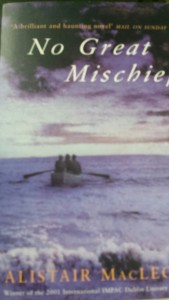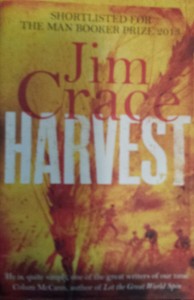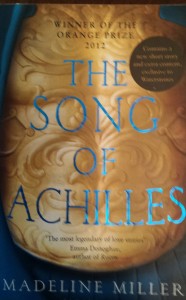I am an avid reader of novels historical, either novels set in the past, or which are informed by an historical event, or a novel in which history plays a part. I am, after all, trying to write one – Reconquista may be an adventure story but it’s definitely set in the past. Following the suggestion that I include book reviews on The Story Bazaar I thought I would discuss three novels and their relationship with the past. All three of the books have garnered prizes and are by writers whom I admire. ( I do not compare myself with any of them. )
 The first is ‘No Great Mischief’ by Alastair MacLeod
The first is ‘No Great Mischief’ by Alastair MacLeod
This is a wonderful, rich and all-encompassing novel by a Canadian of Scottish descent. I am a fan and, if you haven’t come across MacLeod before, I recommend that you try him. He writes short stories as well as novels. ‘No Great Mischief’ charts the history of those Scots who migrated from Scotland after rebellion and clearances . Specifically, through the members of the MacDonald clan, from the Scottish Western Isles, to Nova Scotia, from thence to the Heights of Abraham and Woolf’s victory, through to modern day Toronto. It is also a tragedy of the brave and full hearted, who find themselves living in an indifferent world. History, both recent and distant, is integral to the tragedy of the MacDonald family; and tradition, and traditions, old and new, weave through the narrative, creating a dense, multi-layered novel.
The language is modern and direct, but shot through with Gaelic phrases and phrasing. The title comes from Wolfe’s remark that he would send in his fierce highland Scots troops, because it was ‘no great mischief if they fall’. This is a vibrant, sad and beautiful story, the record of a whole migrant people through a single clan.
 The second is ‘Harvest‘ by Jim Crace
The second is ‘Harvest‘ by Jim Crace
I am a long time admirer of Jim Crace’s work so I went out and bought this the moment it appeared in paperback. I wasn’t disappointed. With economy and precision he depicts a pre-industrial world, before even the agrarian revolution, taking the reader to a place ( medieval England? ) where someone’s future is only as assured as his body, or mind, is capable of assuring it and where chance misfortune can mean ruin or death. This is no pre-lapsarian society, though it has its fine moments, the harvest making and the celebration which follows for example. But there is always a worm in the apple.
The narrator is of the community, but is also separate from it, he has an escape route, while others do not. The language is taut and sinewy, like the people in the hamlet. Human desires, universal, are instantly recognised and empathised with, if not shared. The village villainy is unintentional, good folk doing bad things, the real threat comes from the outside, the representative of an unfeeling early capitalism. This is a cracking read, a historical curiosity and a parable for our times.
 The third is ‘The Song of Achilles’ by Madeline Miller
The third is ‘The Song of Achilles’ by Madeline Miller
The Orange prize winner was and is a classicist who has spent much of her life studying how to bring the ancient tales to a modern audience. She certainly succeeds in creating the ancient world, with all its social systems and beliefs, in seemingly effortless manner, making it very easy to be completely submerged in the narrative. The story is the Iliad and something else too. She turns the well-known narrative on its head, to a degree – it is the peace-loving Patroclus who tells the tale – and the focus is on heroism of a kind different to that of the great classic heroes. The story is all the stronger for it. I found this, quite literally, unputdownable – I read it pretty much without a break.
The world of this book is one in which gods and goddesses walk amongst humans, but, so well conceived and depicted is it that it seems eminently reasonable that a sea-nymph should visit her son, who is studying with a centaur. Yet she doesn’t lose the sense of the numinous, the eerie otherness. The language is modern, often conversational, but it also captures the epic and the royal ( Patroclus was a Prince after all ). There are instances when it is wonderfully poetic, capturing a gesture, a sense or a feeling, which owes much, I suspect, to the original Greek.
So, three novels narrated, at least in part, in the first person. One presents the history of an immigrant people told through remembered stories and its impact upon the present day. One is set in a recognizable historical past, albeit it unnamed, which is a parable for today. And one re-energises and renews an ancient, almost pre-historic story for a new audience. I thoroughly enjoyed all of them. Happy reading.


 RSS – Posts
RSS – Posts